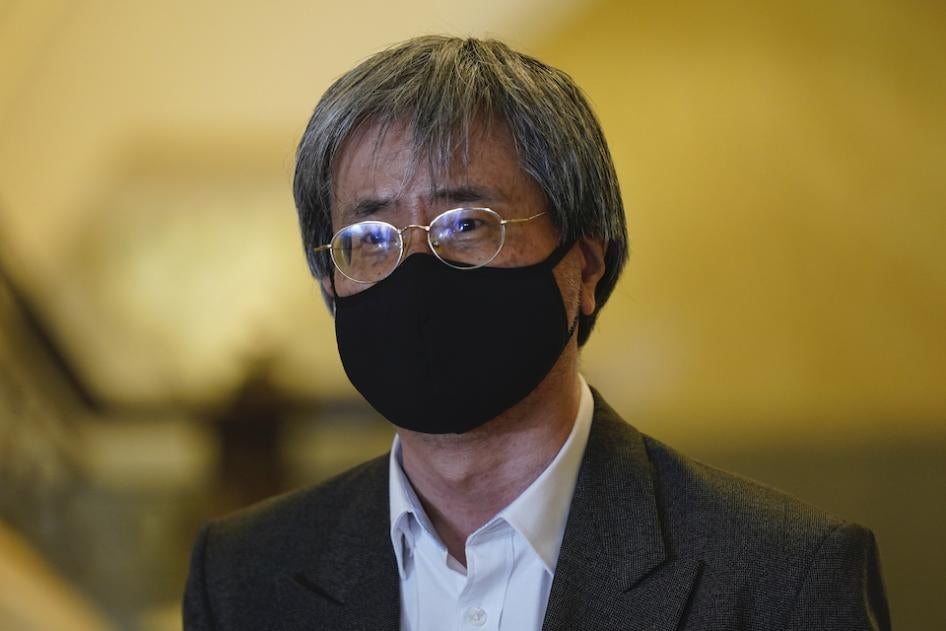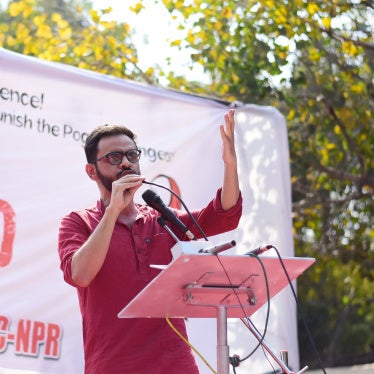(Bangkok) – The Malaysian Federal Court decision holding an online news site responsible for reader comments contravenes international human rights standards and will chill free speech in Malaysia, Human Rights Watch said today.
The court on February 18, 2021, held Malaysiakini in contempt for five comments posted by readers even though the online portal removed the comments within 12 minutes of being notified of their presence. It imposed a fine of RM500,000 (US$124,000) – more than double the amount sought by the attorney general. The decision highlights the threat to free expression posed by section 114A of the Evidence Act, a provision passed in 2012 that creates a presumption that the host, administrator, or editor of the website on which content appears is liable for publishing that content.
“The attorney general’s contempt charge against Malaysiakini is just the latest effort to intimidate and silence critical independent media in Malaysia,” said Linda Lakhdhir, Asia legal advisor at Human Rights Watch. “The government should revise the law to protect online news sites from liability for readers’ posts.”
The case, which the attorney general filed on June 15, 2020, stems from five reader comments posted on the Malaysiakini website on June 9, 2020. The comments, critical of the Malaysian judiciary, were posted under an article reprinting a news release issued by the chief justice of the Federal Court about the reopening of the Malaysian courts after they were temporarily shut due to the Covid-19 pandemic.
Malaysiakini, one of the few independent news outlets in Malaysia, frequently posts content critical of the government. The attorney general sought to have not only Malaysiakini, but also its editor-in-chief, Steven Gan, held in contempt. The court acquitted Gan of the charge. Malaysiakini presented evidence that it was unaware of the comments until they were brought to the portal’s attention by the police and that, once notified, it promptly deleted them.
Under international standards for protection of freedom of speech, internet intermediaries should be immune from liability for third-party content when they have not been involved in modifying that content, and they should never be required to proactively monitor content. According to the UN special rapporteur for the promotion and protection of freedom of opinion and expression, “Intermediary liability creates a strong incentive to censor; providers may find it safest not to challenge such regulation but to over-regulate content such that legitimate and lawful expression also ends up restricted.”
Both the Attorney General and the court relied on section 114A to put the burden on Malaysiakini to prove that it did not have knowledge of the offending content. While the presumption of liability created by the statute can be rebutted, by placing the onus on the defendant to disprove responsibility for publication, the act subverts a fundamental human rights protection – the presumption of innocence – and places a disproportionate burden on internet intermediaries to prove that they were not the “publisher” of the comments. Human Rights Watch, along with the Malaysian Bar Association, has previously called for section 114A to be repealed.
The majority rejected Malaysiakini’s reliance on the voluntary Malaysian Communications and Multimedia Content Code, which sets forth a “notice and take down procedure” and provides that internet intermediaries should only be held liable for content if they have actual knowledge of that content. Justice Nallini Pathmanathan noted in dissent that the code provides “that responsibility for online content rests primarily with the content creator” and that an internet content hosting provider “is not required to monitor the activities of its users and subscribers.”
“This politically motivated case and the court’s punitive fine against one of Malaysia’s few independent news organizations will force them to choose between banning comments or expending scarce resources monitoring and blocking comments,” Lakhdhir said. “If they choose the latter, they will be compelled to over-censor out of fear of liability.”
|
News Release
Malaysia: Court Punishes News Site for Reader Comments
Decision Holding Portals Liable Poses Serious Risk to Freedom of Speech
Your tax deductible gift can help stop human rights violations and save lives around the world.
Topic
Most Viewed
-
June 3, 2025
“They’re Ruining People’s Lives”

-
January 25, 2024
“We’re Dying Here”

-
November 25, 2019
A Dirty Investment

-
April 27, 2021
A Threshold Crossed

-
November 19, 2012
Losing Humanity





